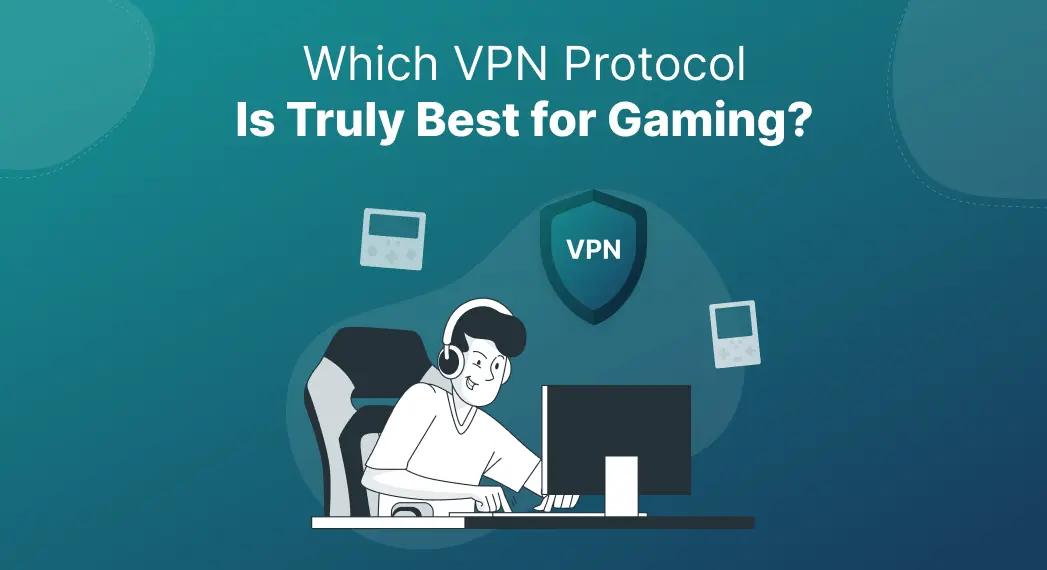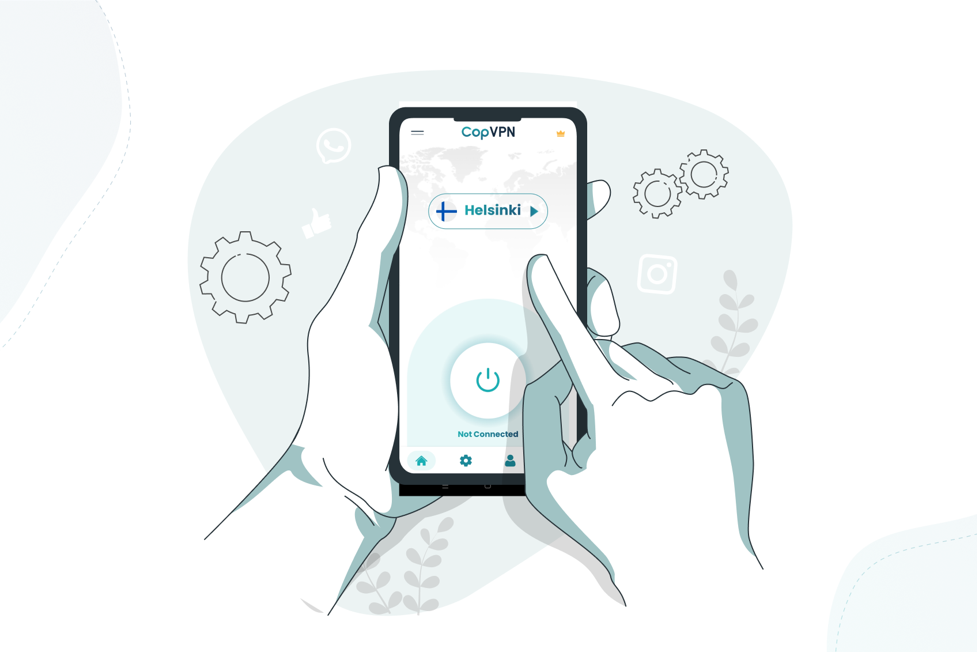History and Evolution of VPN Technology – Different types of VPN
Date 8 Mar, 2024
By Neo
- Exploring the Fascinating Journey of VPN Technology
- Breaking Down VPN Types: Tailoring Your Internet Security
- How to Choose the Best VPN Service?
- Security Protocols and Encryption
- No-Logs Policy
- Server Locations
- Speed and Performance
- Compatibility and Ease of Use
- Customer Support
- Pricing and Value for Money
- Trial Periods, Free server and Money-Back Guarantees
- Finishing Touch on Encrypting Your Data In the Smartest Way
In the dynamic world of digital security, guarding our online lives is no longer a choice but a necessity. Let’s introduce the hero: the “Virtual Private Network”, or VPN. This nifty tool isn’t just a tech buzzword but a digital lifeline in an ocean of cyber threats. Imagine it as an invisible shield for your internet use, encrypting your data safely and hiding it from curious eyes.
Exploring the Fascinating Journey of VPN Technology
The VPN (Virtual Private Network) concept originated in the late 1990s. Initially, it was mainly used by businesses to securely connect remote offices or users to the company’s internal network over the internet.
Over time, VPN technology evolved to meet the growing need for secure internet communication in various contexts. This evolution was driven by the increasing incidents of cyber threats and the awareness of data privacy and security.
The development of more user-friendly VPN services expanded its usage beyond corporate environments to individual consumers concerned about their online privacy and security.
Basic Concept and Original Use of VPN Technology
The fundamental purpose of a VPN is to develop an encrypted connection through any less secure network system, typically the internet. This encryption ensures that data transmitted over the connection remains confidential and safe from unauthorized access.
Originally, VPNs were primarily used by businesses for secure remote access. Employees could connect to their company’s network from different locations, ensuring that sensitive data transmitted over the internet was protected.
Breaking Down VPN Types: Tailoring Your Internet Security
The types of VPNs can be broadly categorized into Personal VPNs and Corporate VPNs, each serving distinct purposes:
Corporate VPN
Key Features of Corporate VPN
Secure Remote Access: It allows employees to securely access the company’s internal network from remote locations.
End-to-End Encryption: It ensures that all data transmitted between the remote employee and corporate networks is fully encrypted and protects sensitive corporate information.
Network Authentication: Incorporates strict authentication protocols to ensure only authorized personnel access the corporate network.
Centralized Control and Management: Provides tools for IT administrators to manage user access, monitor network traffic, and enforce security policies.
Usage Scenarios
Remote Work: Ideal for businesses with a remote workforce needing secure access to internal resources and applications.
Multi-Office Connectivity: Suitable for companies with multiple office locations requiring a secure and consistent communication network.
Data Protection: Essential for organizations handling sensitive data that require robust security measures to prevent data breaches.
Personal VPN
Key Features of Personal VPN
IP Address Masking: Conceals the user’s IP address, enhancing privacy and preventing websites from tracking location and activities.
Encryption of Data: Encrypted internet traffic, securing personal data from hackers, especially on public Wi-Fi networks.
Access to Geo-Restricted Content: Allows users to bypass geographical restrictions and enable access to a wide range of online content.
Ease of Use: It is typically user-friendly with simple setup and operation, making it accessible to many users.
Usage Scenarios
Public Wi-Fi Security: To protect their personal information, individuals must use it when they connect to public Wi-Fi networks in cafes, airports, and hotels.
Privacy-Conscious Browsing: This benefits users who value their privacy and wish to avoid being tracked by advertisers and websites.
Accessing Region-Locked Content: Perfect for users who want to stream content or access services unavailable in their geographic location.
Site-to-Site VPN
Key Features of Site-to-Site VPN
Inter-Office Connectivity: This feature facilitates a secure, encrypted connection between different office locations, making them part of the same virtual network.
Encryption of Data: Ensures that all data transmitted between sites is encrypted, providing high security for sensitive corporate information.
Network Scalability: The network is easily scalable as the organization grows, allowing new sites to be added to it without significant infrastructure changes.
Centralized Network Management: This option allows businesses with multiple locations to manage and monitor the network centrally, simplifying IT operations.
Usage Scenarios
Multi-Branch Organizations: Ideal for businesses with multiple office locations that need to share resources and communicate securely as if on the same local network.
Remote Data Centers: Useful for securely connecting a company’s central office to its remote data centers or storage facilities.
Collaborative Projects: Facilitates seamless and secure collaboration between different departments or branches of a company working on joint projects.
Mobile VPN
Key Features of Mobile VPN
Seamless Network Switching: Maintains a stable and secure VPN connection even when switching between different networks (Example: from Wi-Fi to cellular data).
Persistent User Session: Ensures that applications remain connected and active even when the device’s network connectivity changes or is temporarily lost.
Enhanced Security for Mobile Devices: Provides robust encryption to protect data transmitted from and to mobile devices, safeguarding against potential security breaches.
User Authentication: Often includes strong user authentication measures which ensure only authorized users can enter the VPN-protected network.
Usage Scenarios
Remote Workers and Travelers: Essential for employees who need consistent access to company resources while on the move, ensuring uninterrupted productivity.
Field Services and Logistics: This is ideal for industries like logistics, where workers need constant, secure access to central systems for updates and reporting.
Emergency Services: Critical for emergency response teams who require reliable and secure communication channels in varying locations and conditions.
How to Choose the Best VPN Service?
Choosing the exemplary VPN service is crucial to ensure you get the best security, privacy, and performance mix. Here are some key factors to consider-
Security Protocols and Encryption
A good VPN should offer strong encryption and various security protocols to protect your data. Look for services offering AES-256 encryption, which is the same standard governments and security experts use worldwide. Additionally, protocols like OpenVPN, IKEv2, and WireGuard are known for their balance of speed and security. Avoid services using outdated protocols like PPTP, which could be more secure.
No-Logs Policy
The privacy policy of a VPN is paramount. Choose a VPN provider with a strict no-logs policy, ensuring they don’t store records of your online activities. This is crucial for maintaining your privacy. Some VPNs may claim to have a no-logs policy, so it’s essential to research and verify their claims, possibly through third-party audits or reviews.
Server Locations
The number and location of servers can greatly affect your VPN experience. A wide range of server locations means more options for geo-spoofing and usually better speeds, as you’re more likely to find a server nearby. This is also important if you need to bypass regional restrictions or censorship.
Speed and Performance
VPNs can impact your internet speed, so it’s important to choose a service that offers good performance. Some VPNs offer free trial or money-back guarantees, and some offer free servers to test their service to see how it affects your internet speed. Reading reviews and conducting speed tests can also provide insight into your expected performance.
Compatibility and Ease of Use
Make sure the VPN is compatible with all your devices and offers intuitive, user-friendly software. Consider VPNs that support a variety of platforms, such as Windows, macOS, iOS, Android, and even Linux. User-friendly interfaces and easy-to-navigate apps make the experience much more pleasant, especially for those who are not tech-savvy.
Customer Support
Human customer support is crucial, especially if you encounter technical difficulties or have questions. Look for VPN services that offer 24/7 human customer support with multiple communication channels like live chat, email, or phone calls.
Pricing and Value for Money
Compare the features offered with the pricing. Cheaper is sometimes better, especially when it comes to online security. However, being expensive doesn’t guarantee the best service either. Assess the value you’re getting for your money, considering factors like bandwidth limits, number of simultaneous connections, and additional features like ad blocking.
Trial Periods, Free server and Money-Back Guarantees
A trial period, free server, or money-back guarantee can be very useful. It allows you to test the service to see if it meets your needs without committing financially. This can be a great way to ensure the VPN service works well for you regarding speed, server availability, and ease of use.
Finishing Touch on Encrypting Your Data In the Smartest Way
VPN is not only encrypting your data; technically, it is your passport to a more open, secure, and private online tour. When you’re using public Wi-Fi, streaming shows from around the world, or simply trying to keep your online activity private, a VPN is the perfect tool.
Remember, in the maze of cyber security, a good VPN doesn’t just shield you – it empowers you. So, as you navigate the ever-changing digital landscape, let a VPN be your steadfast companion. Gain the upper hand in the realm of online privacy and freedom with this game-changing tool!
Stay Secure and Sound while Surfing Online!



